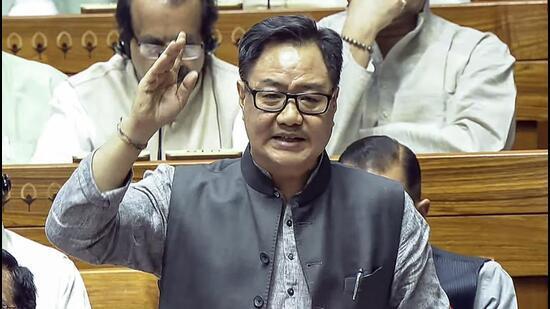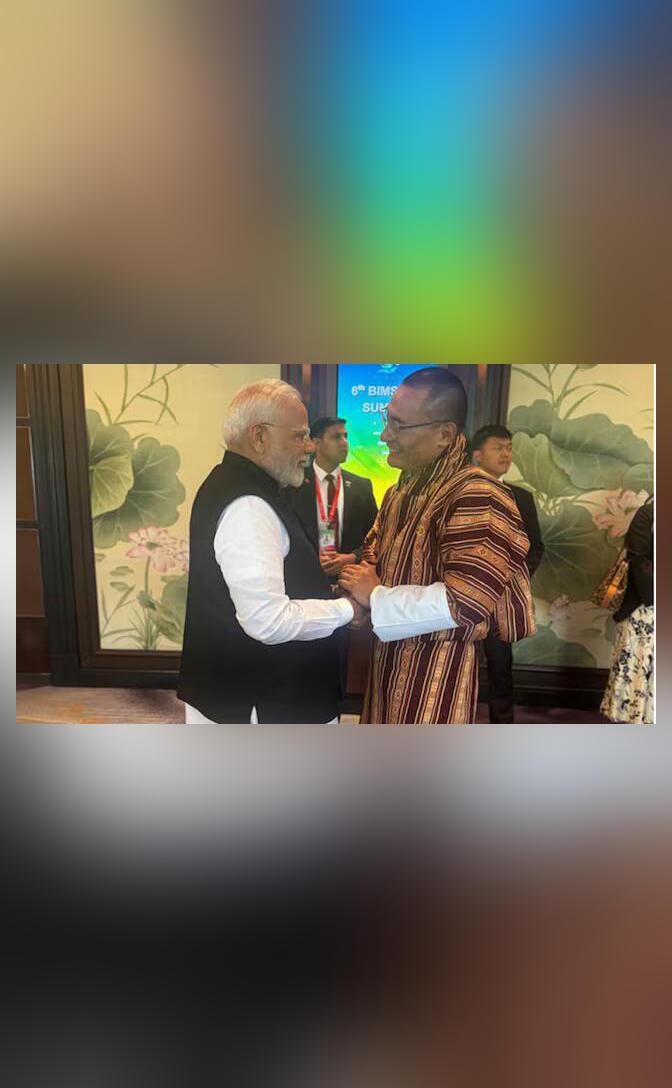
Opposition Creates Confusion & Leaves House: Rijiju in Rajya Sabha
The ongoing debate in the Rajya Sabha over the Waqf (Amendment) Bill has taken an interesting turn with Union Minister Kiren Rijiju criticizing senior opposition members for creating confusion and raising issues without staying back to listen to the replies. Rijiju made this remark during the discussions on the bill, which aims to regulate the management of Waqf properties and provide for their better utilization.
The minister’s remarks were directed at senior Rajya Sabha member, Kapil Sibal, who had compared the properties of Waqf bodies with those of other religious bodies. Rijiju accused Sibal of creating confusion by making such a comparison, and added that the opposition members were not interested in a constructive debate.
“This is a very important bill, and we are trying to regulate the management of Waqf properties. But instead of having a constructive debate, some senior members of the opposition are creating confusion and leaving the House,” Rijiju said during the discussion.
Sibal, in his response, had claimed that the government was trying to dilute the provisions of the Waqf Act, 1995, and accused the government of not being transparent in its dealings with Waqf properties. He also compared the properties of Waqf bodies with those of other religious bodies, stating that the government was trying to bring down the Waqf Board’s properties to the level of other religious bodies.
Rijiju’s criticism of Sibal and other opposition members is not the first instance of a minister attacking the opposition for allegedly creating confusion in the House. In recent times, there have been several instances where ministers have accused opposition members of disrupting the proceedings of the House and creating confusion.
However, Rijiju’s remarks are significant because they highlight the growing trend of ministers and government members attacking the opposition for perceived wrongdoing. This trend is not only undermining the dignity of the House but also creating a toxic atmosphere in the Parliament.
The Waqf (Amendment) Bill is an important piece of legislation that aims to regulate the management of Waqf properties and provide for their better utilization. The bill seeks to empower the Waqf Board to manage the properties of Waqf bodies, which are religious endowments that are managed by the board.
The bill also seeks to provide for the creation of a Waqf Development Corporation, which will be responsible for developing and utilizing the Waqf properties. The corporation will have the power to acquire, hold, and dispose of Waqf properties, and will also have the power to enter into agreements with other organizations for the development of Waqf properties.
The opposition has been critical of the bill, stating that it is an attempt by the government to dilute the provisions of the Waqf Act, 1995. The opposition has also accused the government of not being transparent in its dealings with Waqf properties, and has demanded that the government provide more information about the bill.
In conclusion, Rijiju’s criticism of Sibal and other opposition members highlights the growing trend of ministers and government members attacking the opposition for perceived wrongdoing. This trend is not only undermining the dignity of the House but also creating a toxic atmosphere in the Parliament.
The Waqf (Amendment) Bill is an important piece of legislation that aims to regulate the management of Waqf properties and provide for their better utilization. The opposition has been critical of the bill, stating that it is an attempt by the government to dilute the provisions of the Waqf Act, 1995.
It is essential that the government and the opposition work together to create a constructive and respectful atmosphere in the House. This can be achieved by engaging in a meaningful debate and discussion on the bill, and by providing more information to the members of the House.






